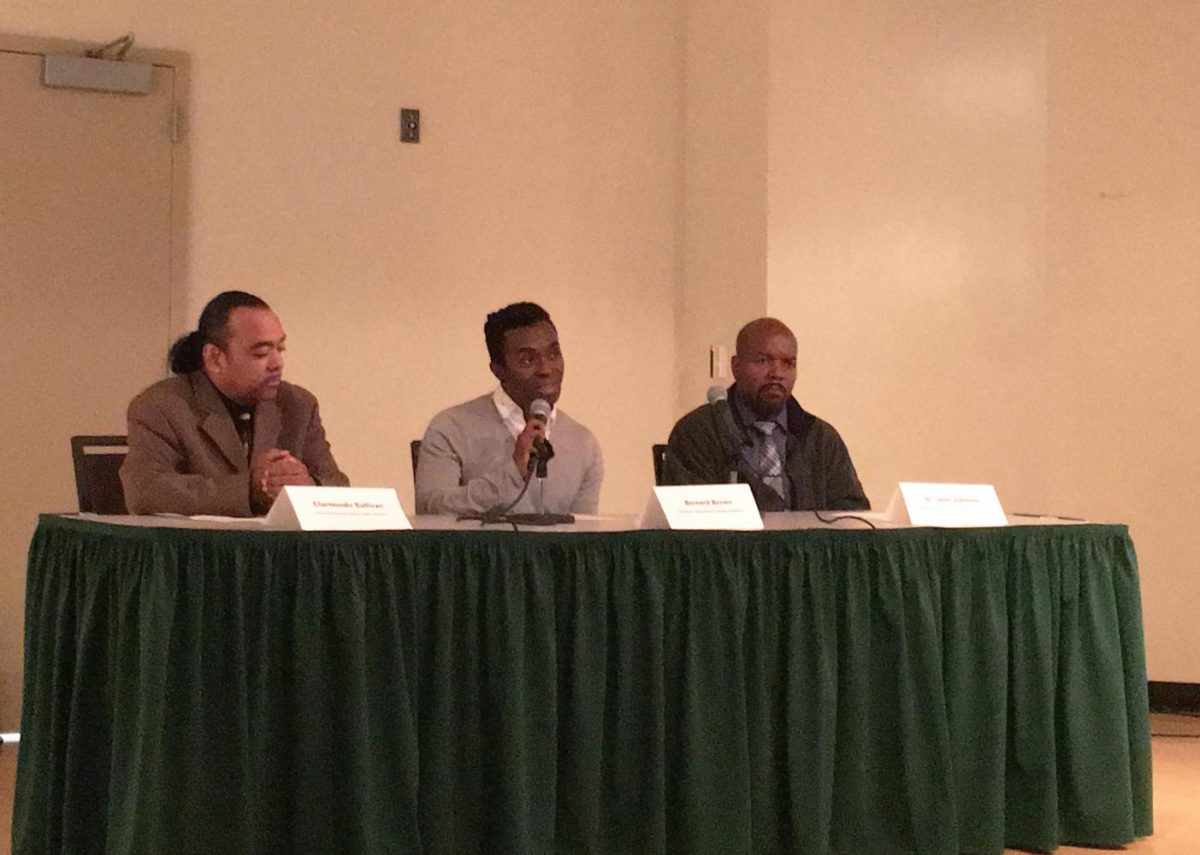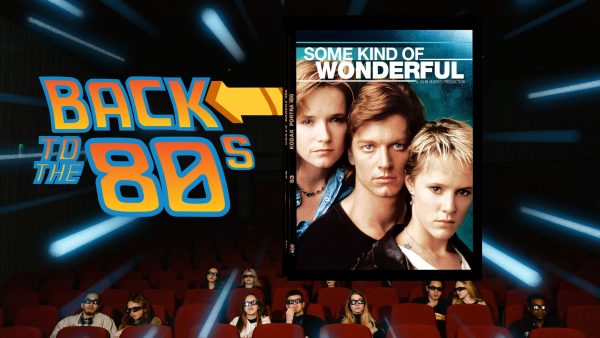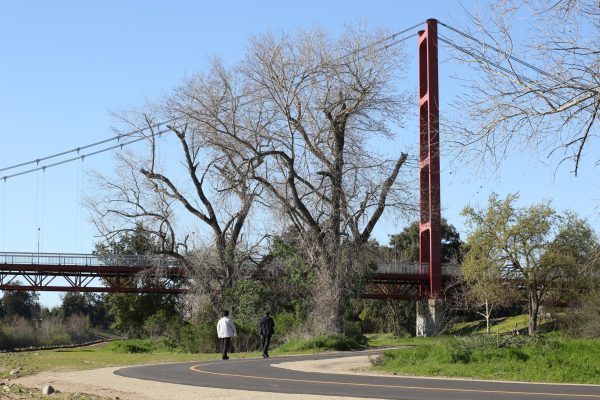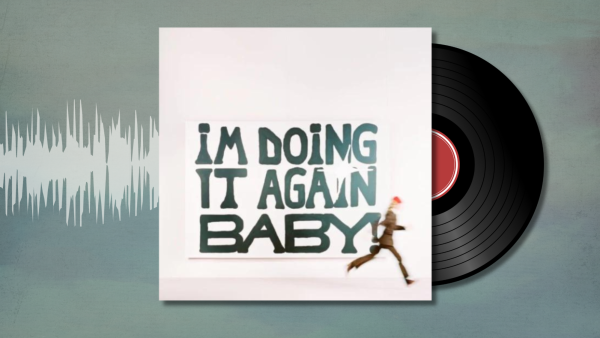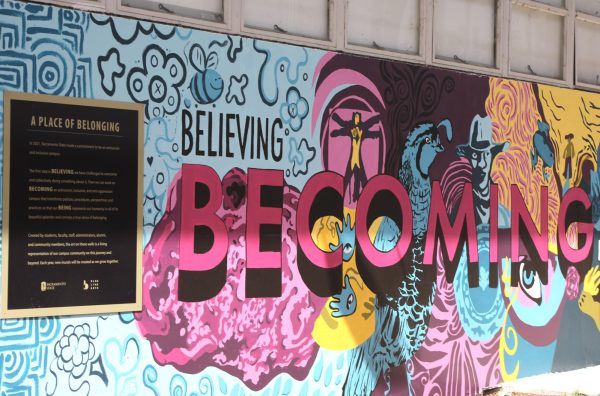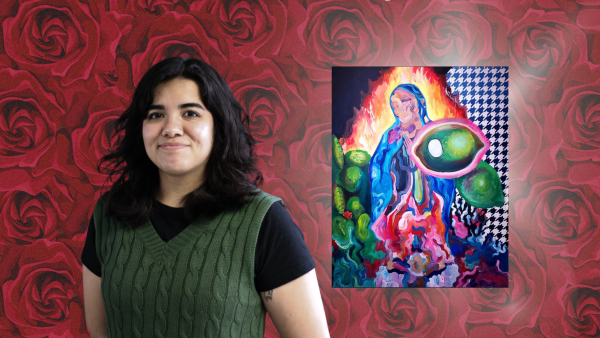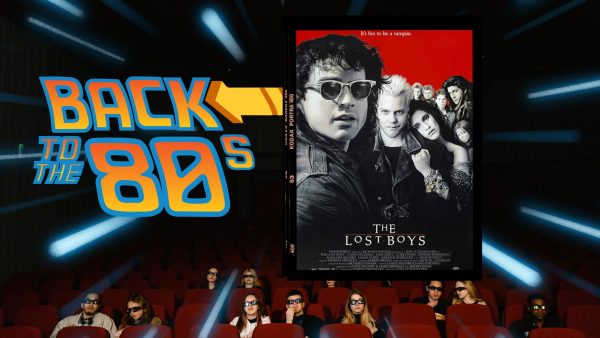Screening sheds ‘Moonlight’ on black LGBTQ representation, validation
Will Moon - The State Hornet
Sacramento State Department of Theater and Dance assistant professor Bernard Brown speaks during the Moonlight panel discussion in the Hinde Auditorium Wednesday. Bernard was accompanied by Centers for Diversity and Inclusion Director John Johnson and Golden Rules Services Executive director Clarmundo Sullivan.
September 28, 2017
Dozens of Sacramento State students gathered for a screening and panel discussion of the Academy Award-winning film “Moonlight” Wednesday in the University Union Hinde Auditorium.
The film follows a young protagonist named Chiron and his experience growing up as a gay black man in Miami, Florida. Chiron is bullied and beaten by his peers and struggles with living in poverty while having to care for his single, crack-addicted mother.
The event, hosted by the PRIDE Center, featured a post-movie panel discussion with Department of Theater and Dance assistant professor Bernard Brown, Centers for Diversity and Inclusion director John Johnson and founder of the minority-based nonprofit, Golden Rules Services, Clarmundo Sullivan.
The panelists discussed a variety of issues surrounding the film including visibility and representation for black and LGBTQ communities, as well as people of color in film.
Sullivan, who identifies as gay, called “Moonlight” a revolutionary film that depicts the true struggle of what it means to be black and gay in the United States.
Golden Rules Services executive director Clarmundo Sullivan speaks on the importance of “Moonlight” at the film’s panel in the Union. pic.twitter.com/e2ADZcOEDI
— Will Moon (@MoonMan0305) September 28, 2017
“A lot of people think that ‘oh, because you’re gay you have a rainbow community and everybody’s going to love you and we’re going to dance (with) flowers,’ and that’s just not the reality of a lot of black gay men,” Sullivan said. “This movie is going to save a lot of lives. Because of the stigma of being same-gender-loving, we have a lot to lose (so) we struggle with whether or not we want to come out (or) whether we even want to live.”
As a gay African-American man growing up in South Los Angeles whose mother also struggles with substance abuse, Brown said he identified with Chiron’s character.
“I went into (the film) a little bit nervous, but I came to be proud of the work because it’s very rare that I see a human version of my story (instead of) a version that is laden with stereotypes and misinformation,” Brown said. “When (Chiron and Kevin) embrace each other, that’s when the tears start flowing for me — it’s like truly seeking that intimate connection with another person. It’s about humanity and not necessarily sexuality.”
Centers for Diversity and Inclusion director Dr. John Johnson discusses one of his favorite scenes from “Moonlight.” pic.twitter.com/LLjrrgG9vX
— Will Moon (@MoonMan0305) September 28, 2017
Freshman journalism major Estefany Nunez said she enjoyed hearing how the panelists connected so strongly to the film.
“For me, as a Latino woman, I could only see so much, and I could only speak on how others might be impacted by this,” Nunez said. “But to listen to people who have actually gone through experiences (similar to those seen in “Moonlight”), it’s really great.”
PRIDE Center student assistant Clar Goboyan said they thought the film highlighted important themes like personal identity and self expression.
“As queer men of color we’re not given the stage, or the humanity, to feel the feelings that we do (like) tenderness,” Goboyan said. “For all folks out there who are struggling with their identity or finding someone that they can look up to — representation humanizes us and shows the world that we are out here. It affirms our (identities).”































































































































